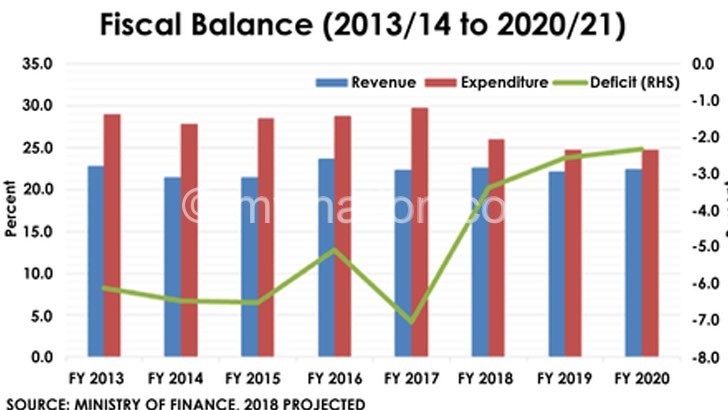2018/19 Budget faces scrutiny
As Parliament is set to meet for the Mid-Year Budget Review session beginning March 5, economic commentators say the budget is bound to face expenditure pressures, revenue gaps and deficits.
So far, the K1.5 trillion 2018/19 National Budget is already stretched following the withdrawal of World Bank’s K60 billion direct budget support.

On the economic front, the performance has also been mixed.
For instance, figures from the Reserve Bank of Malawi (RBM) show that in the six months to December 2018, Treasury has posted four deficits and two surpluses.
On an average, the figures translate to a deficit of 41 percent in the four months, a development that puts a dent on the budget.
On the other hand, some ministries, departments and agencies (MDAs) have stretched their budgets against fiscal targets and such scenario means Treasury has to find more money to fund them until June 2019.
Budget and Finance Committee of Parliament chairperson Rhino Chiphiko, in an interview on Monday, said fiscal authorities have to explain how they have executed the budget from July to date.
He said: “We are actually aware that this year there will over expenditures on some votes and that some grants have not performed.”
Chiphiko expressed concern that the implications of this development are that money will be taken out from some of the important votes to sustain the operations of votes that have depleted their funds.
On his part, International Monetary Fund (IMF) country representative Jack Ree said in response to an e-mailed questionnaire urged fiscal authorities to ensure fiscal discipline, which is the cornerstone for Malawi’s macroeconomic programme supported by the IMF’s Extended Credit Facility (ECF).
“We will have to wait until the authorities release the relevant budget figures.
“A point of interest would be how the budget balance has performed relative to the ECF programme target,” he said.
Ree said in-year expenditure data published so far suggests a possibility that certain MDAs might have used the allocated annual budget at a faster speed than planned, adding that this might reflect more front-loaded timing for spending.
Said Ree: “This could also be foreshadows of a spending over-run relative to the annual budget. I am sure that the medium-term budget review will shed more lights on these issues.
“I expect that the review will present credible a plan for remedial actions if and where they are needed. We also need to make sure that monetary and financial sector policies remain sound.”
Economics Association of Malawi (Ecama) executive director Maleka Thula said Treasury has to ensure a sustainable budget deficit.
He said: “We have observed mixed outturns— deficits and surpluses in the first six months of the budget implementation.
“The overall outcome on this would either exert deficits or reduce surpluses pressure on government borrowing.”
Thula said in the medium term, Ecama is keen to see government spending within its means and implementing a balanced budget.
“It can be noted, that the bulk of government expenditure goes to discretionary expenditure or consumption that can be controlled while less resources go to non-discretionary expenditure such wages and salaries and development related expenses,” he said.
Malawi Confederation of Chambers of Commerce and Industry (MCCCI) chief executive officer Chancellor Kaferapanjira has underscored the importance of the budget review sessions, saying this presents an opportunity for the executive arm of government to be accountable to the public.





